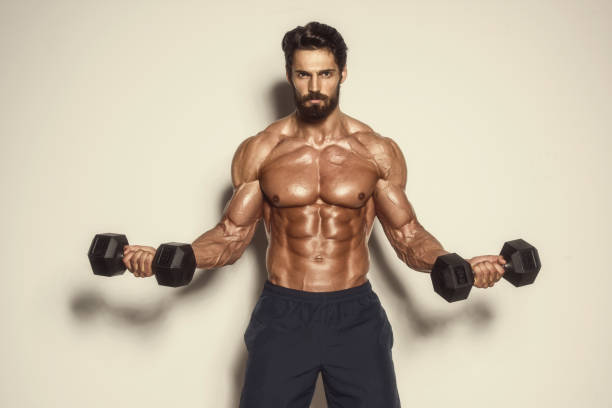The Modern Definition of Strong Men: More Than Muscle
1. What Makes a Man “Strong Men”?
In today’s world, when people talk about “strong men,” they’re not just referring to physical power—though muscle certainly plays a part. The real strength behind the modern ideal of masculinity includes emotional fortitude, moral integrity, and adaptive resilience.
Traditional cultures often associate strength with courage and dependability: a man who stands by his word, protects his family, and confronts adversity. For instance, cultural leaders describe emotional intelligence, resilience, integrity, vision, and courage as the cornerstone qualities of genuinely strong men
Modern voices, such as personal-growth authors, argue that emotional awareness, vulnerability, and empathy are equally essential—even the defining edge—of true strength . This broader perspective invites us to rethink what it actually means to be a “strong man” in the 21st century.
2. Emotional Intelligence: The Hidden Power

Recognizing and managing emotions is a hallmark of emotional intelligence (EQ)—a surprisingly rare trait among those we label as “Strong Men.” EQ begins with self-awareness, not suppression. Emotionally intelligent men recognize their feelings, understand their triggers, and channel those emotions constructively .
They’re not afraid to show vulnerability, and they share emotions sincerely rather than masking them behind stoicism. This openness fosters trust. For example, supportive partners often say:
“He didn’t see it as a sign of weakness but as an opportunity … to strengthen our bond”These men stay mentally flexible, capable of empathizing with others and using emotional clarity to make better decisions. A man who grips his feelings—not crushes them—is showing real strength.
3. Resilience in Real Life: Bouncing Back
Life throws curveballs—job loss, heartbreak, illness—and resilience is the muscle that allows us to bounce back. Resilient men see challenges as chances to grow, not just obstacles. They persevere even when the path ahead is unclear They understand that resilience isn’t invulnerability; it’s the ability to adapt, adjust, and maintain perspective. The analogy: “like a sturdy tree that bends in the wind but doesn’t break.” This mental flexibility is essential in a world that constantly shifts .
Such resilience allows for a healthier approach to failure: learning, pivoting, and moving forward—not getting stuck in shame or fear.
4. Integrity and Accountability: Pillars of Character
Integrity forms the bedrock of dependable strength. A strong man’s word is his bond—when he commits, he follows through. When he errs, he owns up.
Psychologists laud accountability as a mature trait. Emotionally strong men don’t hide behind excuses—they accept responsibility for their actions and their impact.
When you know a man who lives his values even when out of sight, acts consistently, honors his promises, and learns from mistakes—that’s someone you can rely on, and why integrity remains a signature of true strength.
5. Humility and Vulnerability: Strength Through Openness
Contrary to hardcore stereotypes, humility is essential to strength. Humble Strong Men acknowledge they don’t have all the answers. They value feedback and see themselves as lifelong learners .
Vulnerability isn’t a flaw—it’s courage wrapped in honesty. It’s the ability to say, “Here’s where I’m struggling,” to loved ones or teammates. Psychologists say this openness builds deeper relationships and self-trust .
Embracing vulnerability helps rewrite the outdated narrative that Strong Men must stay unfeeling and alone. Far from weakening them, it connects them authentically.
6. Vision, Courage, and Leadership
Classic strength isn’t about fighting alone—it’s about leading with purpose. Strong men set a vision: goals they chase not just for themselves, but to inspire others .
They have the courage to step out of comfort zones. Courage here means choosing what’s right over easy, facing fears, and standing up for values—even when unpopular
Modern leadership is less about barking orders and more about guiding with empathy, ethics, and conviction. That kind of leadership builds trust—and strength—within communities.
7. Discipline, Self-Control, and Reliability
Discipline is the daily choice to align action with intention. It’s doing the small things—waking early, training the body, protecting mental space—that compound into major wins .
Self-control keeps impulses in check: it’s choosing long-term growth over instant gratification. That’s the real difference between strength and aggression.
Reliability is the act of showing up—meeting deadlines, being emotionally present, and consistently giving your best. That dependability cements your reputation as someone people can count on .
8. Empathy, Compassion & Altruism
Yes, compassion is a powerful form of strength. Empathetic Strong Men can understand others’ struggles and act in kind
Their altruism helps them contribute—despite not expecting anything in return. They mentor, volunteer, or simply lend a listening ear. Strength isn’t just self-focused—it’s community-focused .
A strong man lifts not just himself, but those around him, by sharing time, knowledge, and support.
9. Authenticity, Gratitude & Purpose
Authenticity means showing up as your true self. No masks. No posturing. This kind of honesty builds real trust.
Gratitude isn’t just being polite; it’s recognizing what’s good and expressing thanks regularly. It strengthens relationships and boosts mental well-being .
Living with purpose means aligning your life with values—not drifting. Whether that purpose is raising a family, building a career, or helping others, it fuels resilience, meaning, and impact.
10. Physical Strength: Still Part of the Picture
Physical ability isn’t the end, but it’s certainly a beginning. Movement—whether weightlifting, running, or martial arts—teaches discipline, confidence, and mental endurance .
Yet physical strength in truly strong men supports other dimensions: emotional well-being, stress release, confidence. It’s part of a holistic approach—not a trophy.
Conclusion: Strength Reimagined
Strength in men is no longer just about muscle or dominance. It’s the integration of emotional intelligence, resilience, integrity, humility, empathy, self-discipline, and purpose. It’s the daily choice to evolve, connect, and lead by example.
A truly strong man doesn’t hide behind stereotypes. He faces his own emotions, admits when he’s wrong, and stays committed to his values. He lifts others as he rises.
So the next time you ask, “What makes a man strong?”, remember: it’s not only what he can lift—but how he lives.



